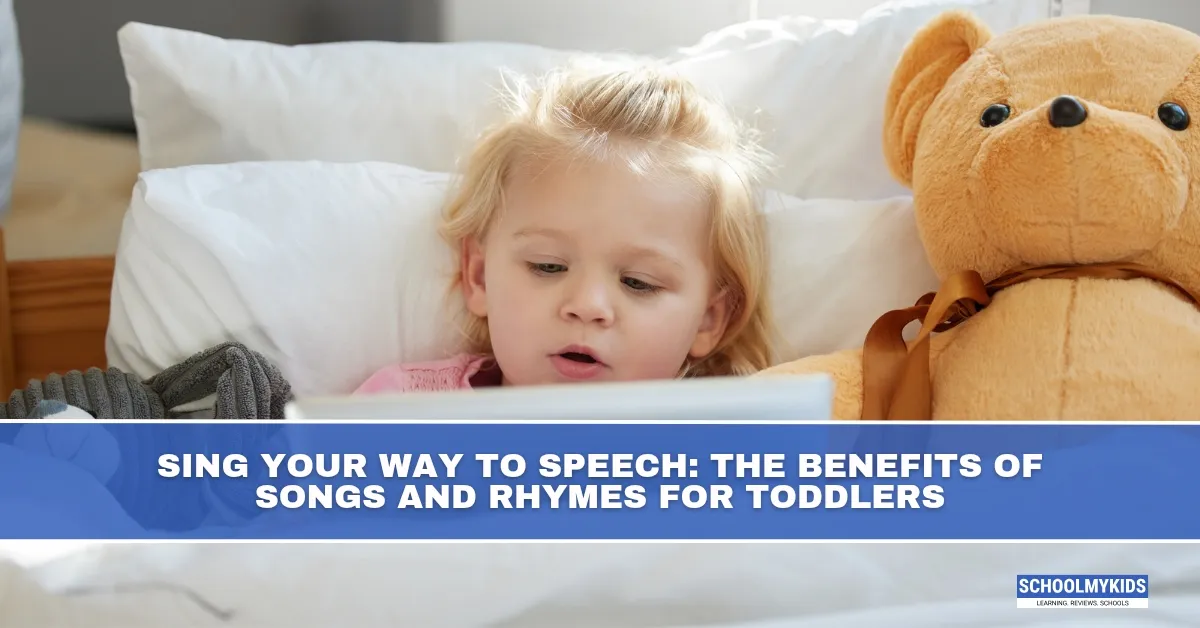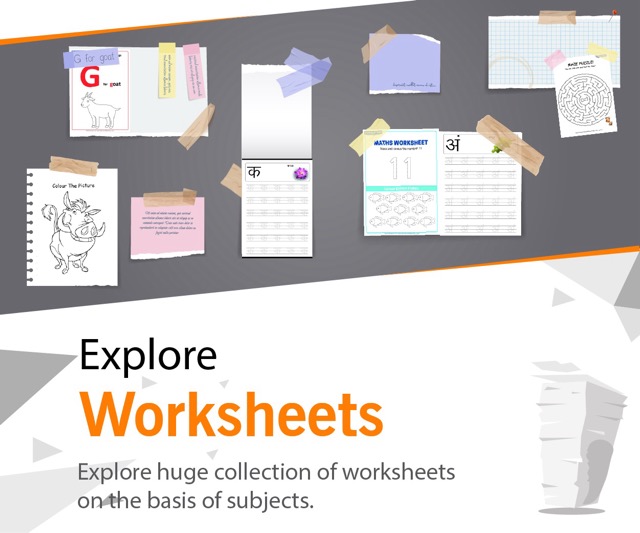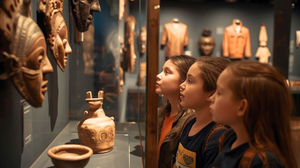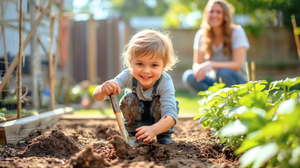Have you ever noticed how your baby’s eyes light up when you start singing their favorite nursery rhyme? Or how they giggle and clap along, even if they can’t quite get all the words right? Singing and rhyming with your toddler isn’t just a fun way to pass the time; it’s actually a powerful tool for helping them learn to speak, listen, and connect with the world around them.
Why Off-Key Singing Is Actually Magical?
Let's be real—most parents aren't exactly ready for Indian Idol. But here's the awesome thing: toddlers don't care! To them, a parent's voice is the most beautiful sound in the world. And every time someone breaks into song or recites a silly rhyme, they're helping that little brain develop in amazing ways.
Think about the first time your baby smiled at you. Chances are, it happened when you were singing or talking in a sing-song voice. Babies and toddlers are naturally drawn to tune and rhythm. Songs and rhymes are like a fun, playful language lesson wrapped up in a hug.
The Benefits of Songs and Rhymes
Here’s why singing is so beneficial for your toddler:
1. Builds Vocabulary
When you sing, you introduce new words in a memorable way. Songs often repeat words and phrases, which helps toddlers remember them. For example, “Twinkle, Twinkle, Little Star” teaches words like “star,” “sky,” and “wonder.” Over time, these words become part of your child’s vocabulary.
2. Improves Pronunciation and Speech Clarity
Singing slows down language and emphasizes different sounds. This makes it easier for toddlers to hear and practice new words. The rhythm and melody help them learn how to pronounce words clearly and confidently.
3. Boosts Listening Skills
Listening to songs helps children pay attention and follow along. They learn to recognize patterns, predict what comes next, and understand the flow of language. This is a big step toward becoming a good listener and communicator.
4. Encourages Social Interaction
Singing together is a wonderful bonding experience. It encourages eye contact, turn-taking, and sharing. Whether you’re singing “Row, Row, Row Your Boat” with hand motions or clapping along to “If You’re Happy and You Know It,” you’re teaching your child how to interact with others.
5. Supports Memory and Learning
The repetition in songs and rhymes helps toddlers remember information. Have you ever noticed how your child can sing a whole song after hearing it just a few times? That’s because music activates different parts of the brain, making learning easier and more fun.
6. Builds Confidence
When toddlers join in singing, they feel proud of themselves. Even if they don’t get all the words right, the act of participating boosts their confidence and encourages them to keep trying.
Beyond Words: The Hidden Benefits
But wait, there's more! Singing with toddlers delivers some serious developmental perks:
- Bonding time: When families sing together, they're making eye contact, sharing emotions, and creating special memories. Those "Twinkle Twinkle" moments are building relationships.
- Emotional regulation: Ever noticed how a familiar song can calm a meltdown? Music helps toddlers process and express their big feelings when words fail them.
- Cognitive development: Songs that involve counting, the alphabet, or sequences are sneakily educational. Children are learning patterns, memory skills, and basic concepts while having fun!
- Motor skills: Add some hand movements to "Itsy Bitsy Spider," and suddenly those little hands are developing fine motor skills too. Throw in some dancing, and gross motor skills get a workout!
Easy Ways to Add More Music to Your Day
No music degree or fancy equipment needed to make this happen. Here are some super simple ways to bring more singing into daily routines:
- Create transition songs: Make up little tunes for everyday activities like diaper changes, bath time, or cleaning up toys. Even a simple "Now it's time to brush our teeth, brush our teeth, brush our teeth" can make routines smoother.
- Car concerts: Turn drive time into sing-along time. Bonus: it prevents backseat meltdowns!
- Make it silly: Change the words to familiar songs to make toddlers giggle. "Old MacDonald had a... DINOSAUR?!" Humor helps with language retention.
- Add movement: Incorporate simple hand gestures or full-body movements to songs. This engages multiple senses and makes the experience more memorable.
- Follow their lead: Notice which songs make little ones light up, and keep those in heavy rotation. Their favorites are giving their brains exactly what they need!
When The Musical Well Runs Dry
Let's be honest—there will come a point when, if parents have to sing "Baby Shark" one more time, they might lose their minds. When running out of ideas:
- Check out the local library for toddler music time
- Look up simple fingerplays and rhymes online
- Try a music class if it fits the budget
- Create a playlist of kid-friendly songs for those moments when vocal cords need a break
What If My Child Doesn’t Like to Sing?
Some toddlers are shy or prefer to listen rather than join in. That’s totally okay! You can still sing to them, and over time, they may start to participate in their own way. The most important thing is to keep it fun and pressure-free.
Conclusion
Singing and rhyming with your toddler is one of the easiest, most joyful ways to support their speech and language development. Every time you sing together, you’re helping your child build the skills they need to communicate, connect, and thrive.
So, grab your favorite nursery rhyme, turn up the fun, and sing your way to speech with your little one. You’ll be amazed at how much they learn-and how much fun you’ll have along the way!
Ready to get started? Here are a few classic songs to try with your toddler:
- “Old MacDonald Had a Farm”
- “The Wheels on the Bus”
- “Lakdi Ki Kathi”
- “Five Little Ducks”
- “Akkad Bakkad Bambe Bo”
- “Chanda Mama Door Ke”
- “Head, Shoulders, Knees, and Toes”
Happy singing!









Be the first one to comment on this story.